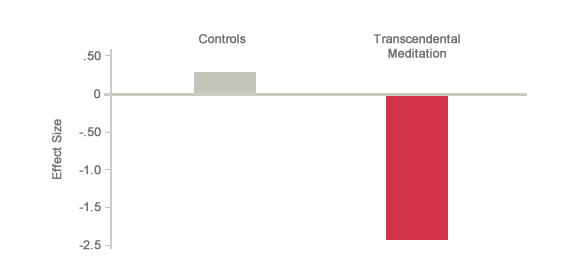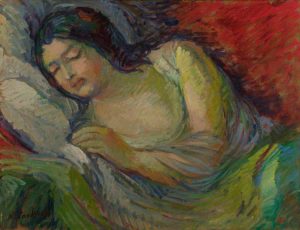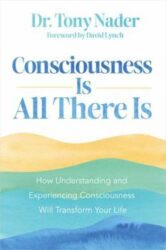Catching Enough Zzzs
Studies show that Americans are the most sleep deprived people in the world. Around the USA, high numbers of both adults and youngsters are reporting that they have sleep problems. However, a recent survey by the Centers for Disease Control and Prevention found that single moms have a harder time falling and staying asleep, sleep less than other demographics, and are more likely to wake up not feeling rested most mornings, reports the Los Angeles Times. These sleep issues are known to start as early as a girl’s first menstruation.
Most people have the tendency to sacrifice sleep hours to make way for other demands they consider priorities, including family and social demands as well as job responsibilities. It’s not surprising that single mothers have the hardest problems in this regard. Approximately 44% of single moms have less than seven hours of sleep per night. Compare that percentage to 38% of single fathers, to 31% of women in two-parent families and to 30% of women who don’t have children. Unfortunately, about a tenth of women without children regularly resort to sleep medication—more than any other demographic.
Because approximately 41% of all births in the USA currently occur to single women, problems like sleep deprivation are greater for society as a whole.
Sleep Loss Affects Women More Than Men
Edward Suarez, PhD, an associate professor in the department of psychiatry and behavioral sciences at Duke University Medical Center, led a team of researchers who, in a recent study, found that women who reported unhealthy sleep are at an elevated risk for heart disease, type 2 diabetes, and depression.
“The differences are so remarkable,” Suarez stated. “Most studies have said that poor sleep is bad for overall health, but few studies have looked at these gender differences.” He added that unhealthy sleep patterns more drastically affect women’s health and can lead to a shorter life span than it would for men. For example, women with insomnia and restless nights have higher levels than men of C-reactive protein and other indications that are linked to hypertension and heart disease. Also, sleep deprivation is linked to increased appetite, causing weight gain in both genders, but the Duke study showed that women who are poor sleepers tend to be more overweight than men with sleep problems.
How to Do Less and Accomplish More so There’s Time to Sleep
Many women and even young students have learned Transcendental Meditation because they are exhausted from lack of rest and are seeking relief. They’ve noticed that as their fatigue accumulates, their choices get worse when it comes to planning. In exhaustion, they begin chores that could have been put off until the next day, answer emails that can easily wait, and stare mindlessly at the TV when they should shut out the light and sleep. The TM technique has been shown by published research to increase the coherent and integrated functioning of the brain, increasing our organizing power, focus and efficiency during the day and evening. We find that with increased clarity, we can do less and yet manage to get more done. And that leaves time for zzzs.
How to Compensate for Lost Sleep
The mind and body function differently during TM practice and sleep so the TM technique is not a substitute for sleep, but the deep rest and reduction of fatigue and stress during TM will help relieve us of the misery we endure by not having slept well or enough. The TM technique increases energy, stamina, and resilience so your day will be better than you’d have anticipated.
Insomnia
Lack of sleep is not always by choice. Insomnia plagues a significant number of women and girls. Insomnia is associated with several heart disease risks such as hypertension, atherosclerosis and obesity. Over time it can affect heart attacks, heart failure and, according to Duke University scientists among others, strokes. Large studies have indicated a strong link in women between chronic insomnia and increased inflammation. Inflammation is associated with atherosclerosis and other serious health disorders that, in turn, may affect sleep.
How TM Reduces Insomnia
Dr. James Krag, a Fellow of the American Psychiatric Association and president of the Psychiatric Society of Virginia, says “There are many reasons for insomnia, but the most frequent cause is anxiety and stress. Of course, it is possible that some practitioners of the Transcendental Meditation technique can occasionally have the problem of insomnia. However, since the TM technique helps lessen stress, most people with insomnia who learn the Transcendental Meditation program find that it becomes less and less of a problem.”
During the Transcendental Meditation technique, the mind settles automatically and naturally to quieter levels of thought during which both the mind and body rest deeply, experiencing a state that is the opposite of anxiety. This deep rest reduces stress and fatigue. Chronic stress responses seen with insomnia impact the heart due to higher blood pressure, increased release of stress hormones, and higher heart rate. Stress, anxiety, pain and other factors that contribute to insomnia are all shown to be reduced with the TM technique; therefor TM contributes significantly to the reduction of insomnia.
DECREASED INSOMNIA THROUGH THE TRANSCENDENTAL MEDITATION PROGRAM
Reference: Journal of Counseling and Development 64: 212-215, 1985

Sleep is vitally important to everyone, especially women. Sometimes “me time” should be done horizontally, asleep. And sometimes it should be done sitting comfortably with closed eyes, meditating.
About the Author
Maribeth Flood M.S. RN, ARNP, PMHNP-BC is a counselor in Olympia, Washington.






